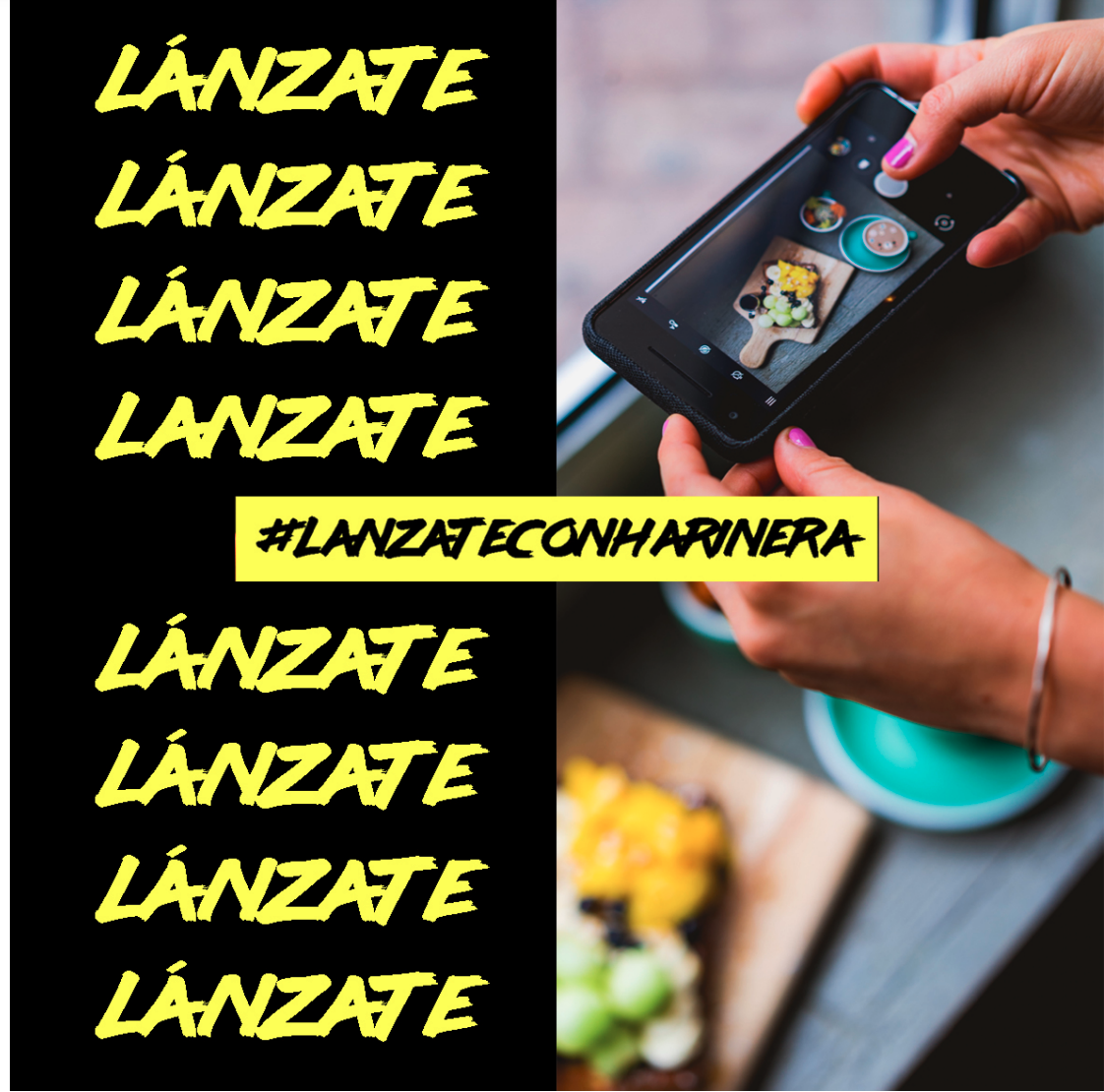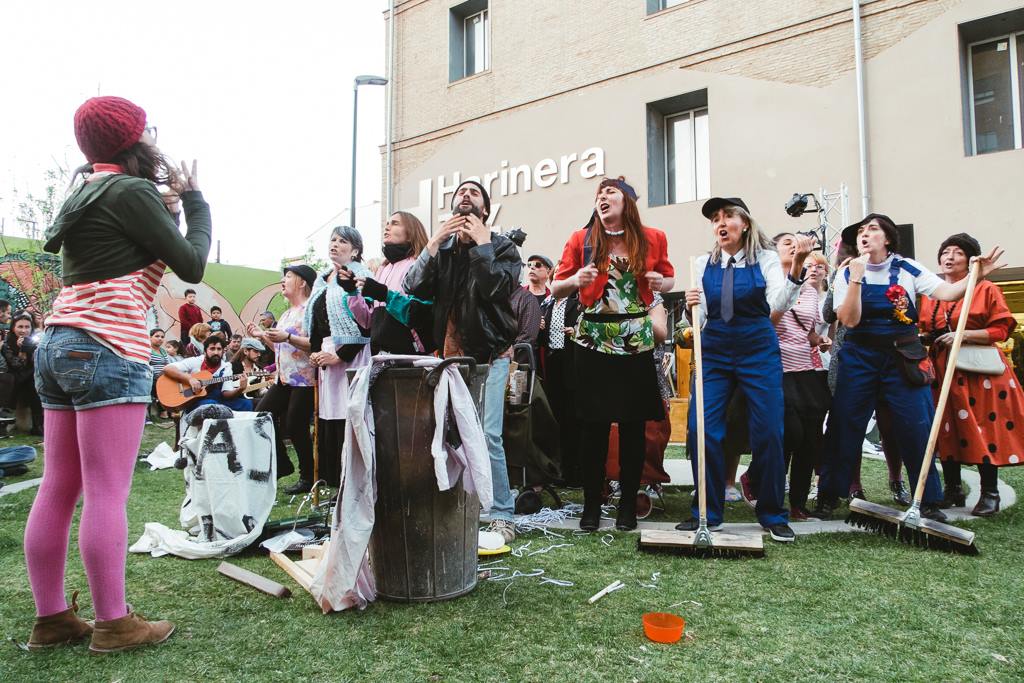The ACED Project
Led by University of Deusto, people engaged in the management and programming of Harinera ZGZ started some workshops to implement and test the Adeste+ the Audience Centred Experience Design, a methodology designed by knowledge partners in the framework of the project. Through the implementation of this methodology, the project commission in Harinera ZG detected that young people and migrant women were not involved in the organization.
Harinera ZGZ has been working on a collaborative process based on the principles of design thinking. In the first place, the group delved into the community structure and delimited three different layers of members according to their implication: Attenders, people involved in management and people implicated in programming. Consequently, three different approaches to work on the development of the Harinera project were established. From this point, the community itself was able to identify two specific targets to focus on.
According to the human centred design, the group defined a real person (PERSONA, a tool from our blueprint) to represent each target, and so the Harinera community visualized Fátima (a migrant woman) and Álex (a young person interested in undertaking a cultural project). Nevertheless, after validating ideas and assumptions, the community decided to focus just on Alex, and as a result, Lánzate con Harinera was born.

Outcomes
Even though Harinera ZGZ has a shared governance model, Adeste+ has been the opportunity to find out that there were some segments of citizens Harinera didn’t reach.
The output of the ACED process is Lánzate con Harinera has aimed to enlarge the core community of Harinera ZGZ by involving young people (from 14 to 29 years old) in the programming. For this reason, Harinera ZGZ launched a call to select four projects to guide them by providing professional support, so they could get used to Harinera’s participatory model. Selected projects were:
Black jacket: It is a project in which five 15 year old boys propose to make a thriller short film.
Coming of age: It is a multidisciplinary project about growing up. It focuses on fashion as a way to build identity. The final outcome is a fashion film. Promoters are 18 years old.
PreguntandoNóos: It is an action research project founded on dialogue. From a collaborative approach, the project reflects on sex differences. There are two final outcomes, a fanzine and a multidisciplinary exhibition.
Maños Music Festival: It is an urban music festival aiming to boost hip-hop music in Zaragoza and give visibility to young musicians.
To sum up, Lánzate project has certainly been a success that has exceeded our expectations, and above all, it let Harinera open up the community to new people.
Putting people at the centre of cultural policies is the key to promoting a genuine right to culture for all: listening, co-creating and facilitating all kinds of culture.
Learning
In general, to undertake projects that address the problem of cultural participation, public cultural institutions need to face organizational change by implementing processes that stress the importance of mediation. As has been said, organizational change is key, but decision-makers need to understand that it needs human and economic resources to be successful.
The strategy we have followed this time is not so different from how we manage our projects and Harinera itself, as we are focused on this idea of community culture. We feel that the best learning has been about how to approach our specific target group, young people: their languages, needs, and communication channels.
We can’t say right now if it will happen, but some of the people in the community have said that we should launch the project every year. We will see if we have the resources to do it. And, who knows, maybe we will have some of these youngsters joining the managing collective in the future.


Other people's thoughts
Rach Oxton-King
Comment on individual case study